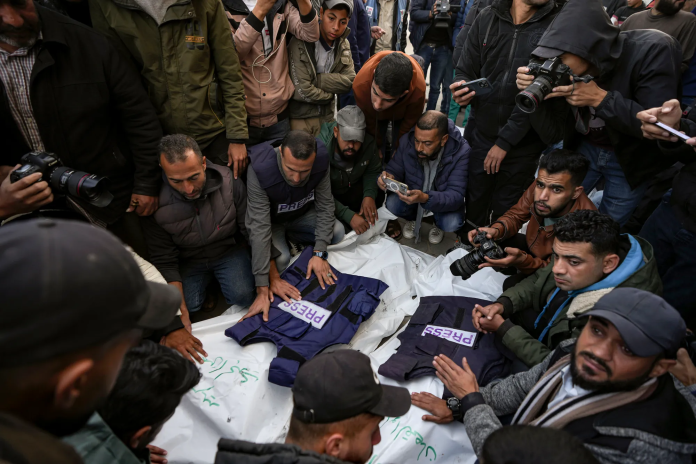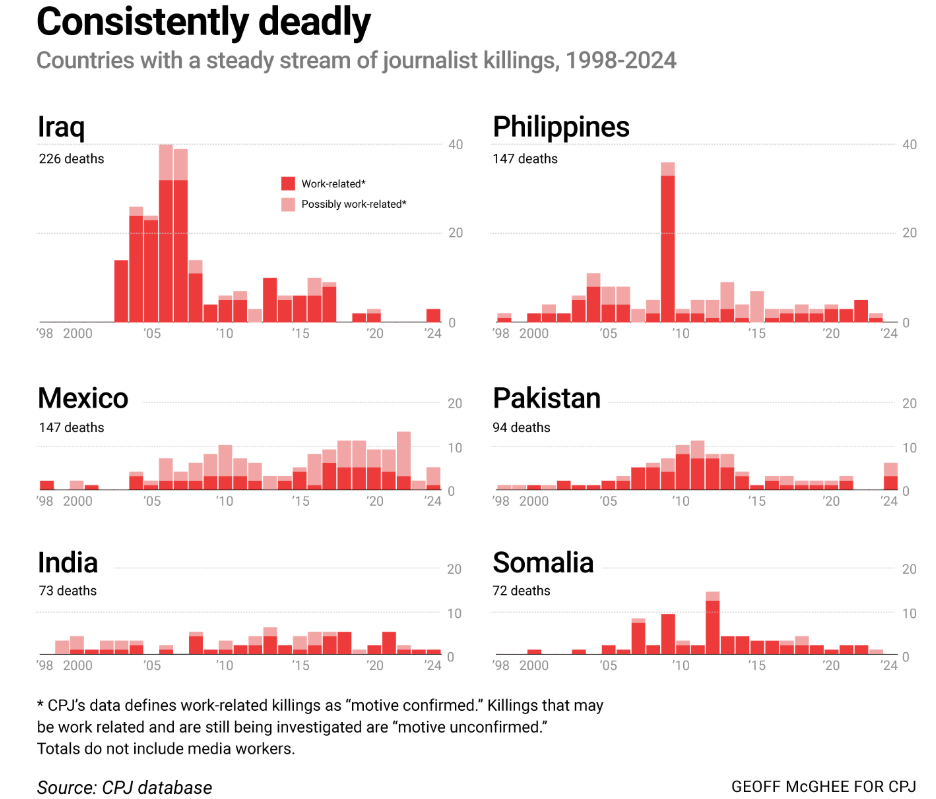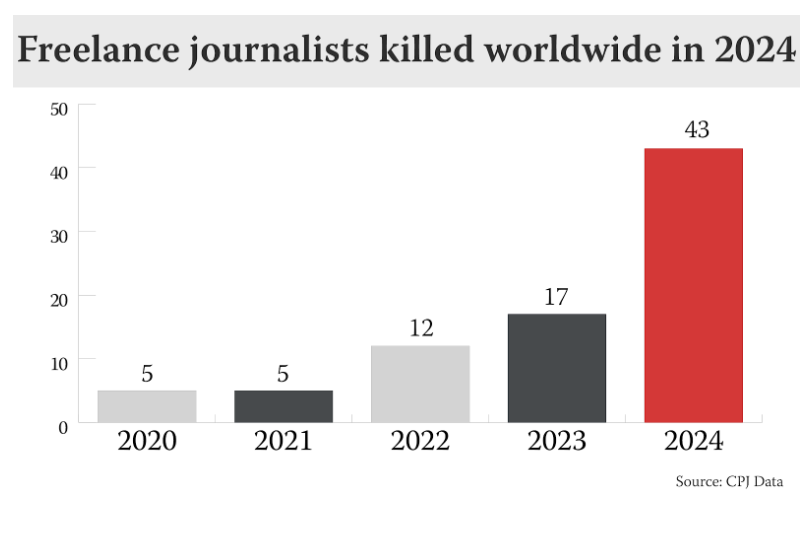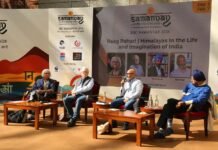
The year 2024 was the deadliest for the media fraternity with 124 journalists and media workers killed across the world in three decades, the Committee to Protect Journalists (CPJ) has said, adding nearly two-thirds of them were Palestinians killed by Israel.
The number of political, criminal, or military conflicts has doubled across the globe in the past five years, and this is reflected in the high number of deaths of journalists in nations such as Sudan, Pakistan, and Myanmar, CPJ said.
The toll on the press, however, is the most glaring in the Israel-Gaza war, where 85 journalists and media workers (82 in Gaza and 3 in Lebanon), were killed in 2024 and 78 in 2023, the New York-based global media watchdog said.

The committee says it found that at least 24 journalists worldwide were deliberately killed because of their work in 2024. In Gaza and Lebanon, CPJ says it documented 10 cases where journalists were deliberately targeted.
“CPJ considers journalists to have been murdered if there is credible evidence that they were targeted, either in a premeditated or spontaneous way, in connection with their work,” it said.
The year 2007 was equally deadly with 113 journalists killed – the Iraq war accounting for almost half of the casualties.
Outside Gaza, 39 journalists and media workers were killed in 16 nations in 2024 with a civil war-ravaged Sudan and a politically fragile Pakistan topping with six deaths each followed by Mexico (5), Syria (4), Myanmar (3), Iraq (3), and Haiti (2). Myanmar, Mozambique, India, and Iraq are also on the list
Forty-three of the killed journalists and media workers were freelancers of which 31 were from Gaza.
In addition to those murdered, CPJ says it documented work-related killings of journalists caught in combat or crossfire, or while they were on dangerous assignments.
“The death tolls in Mexico, Pakistan, India, and Iraq reinforced the extreme dangers journalists face in these nations, which have experienced repeated killings over multiple decades despite numerous efforts in some of these countries, including at the national level, to address this,” CPJ said in its report.
Suggestions
The committee has listed a set of recommendations, which include risk assessments – digital and physical threats – for all journalists, media workers, and freelancers and provide digital and physical security training for all journalists and media workers, regardless of their employment status.

It says journalists should be recognized as civilians and protected under international humanitarian law, even when conducting dangerous assignments in conflict zones.
Governments, it said, are chiefly responsible for ensuring the safety of journalists taking place in or under their jurisdiction and they must publicly acknowledge and condemn journalist killings, and refrain from political rhetoric that vilifies journalists for their work and contributes to an environment that compromises their safety and diminishes the political will to protect them and deliver justice.
CPJ says its database of killed journalists is divided into ‘confirmed’ and ‘unconfirmed.’ Deaths are classified as ‘confirmed’ when the evidence indicates a journalist was killed in connection with their work, and unconfirmed when there is insufficient information to determine the motive for the killing.

















